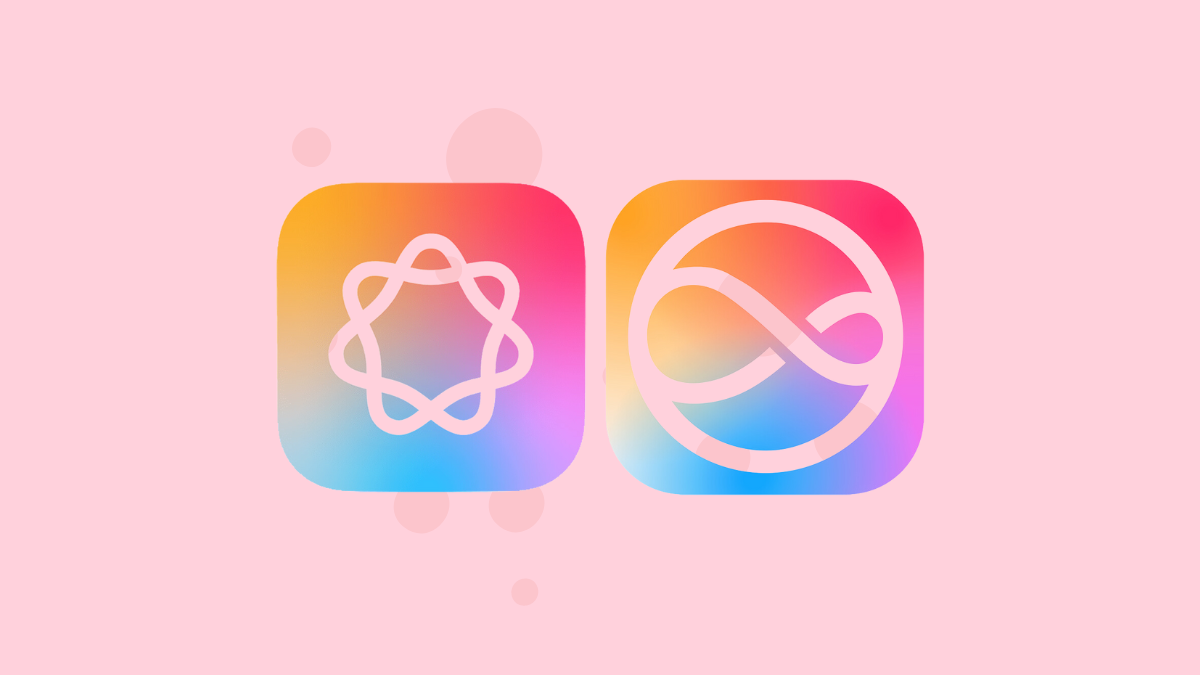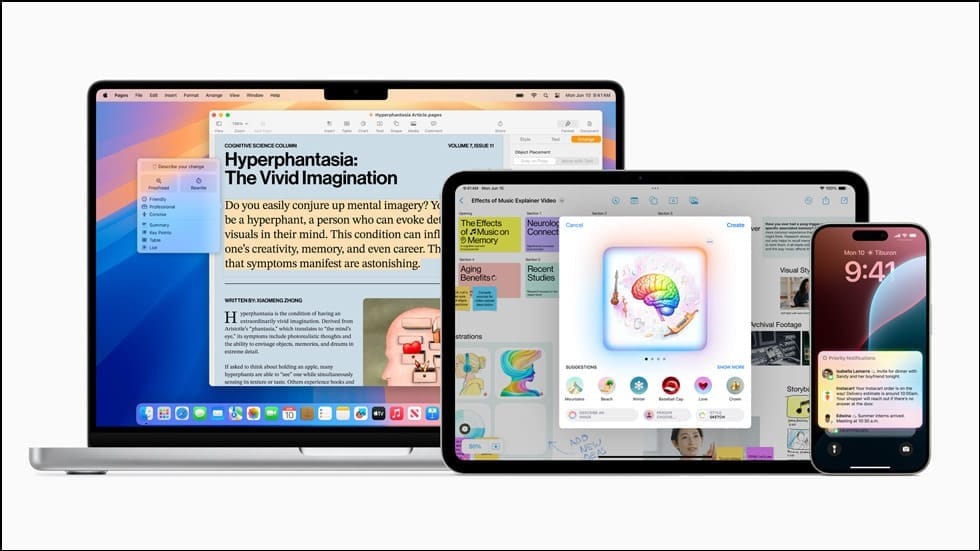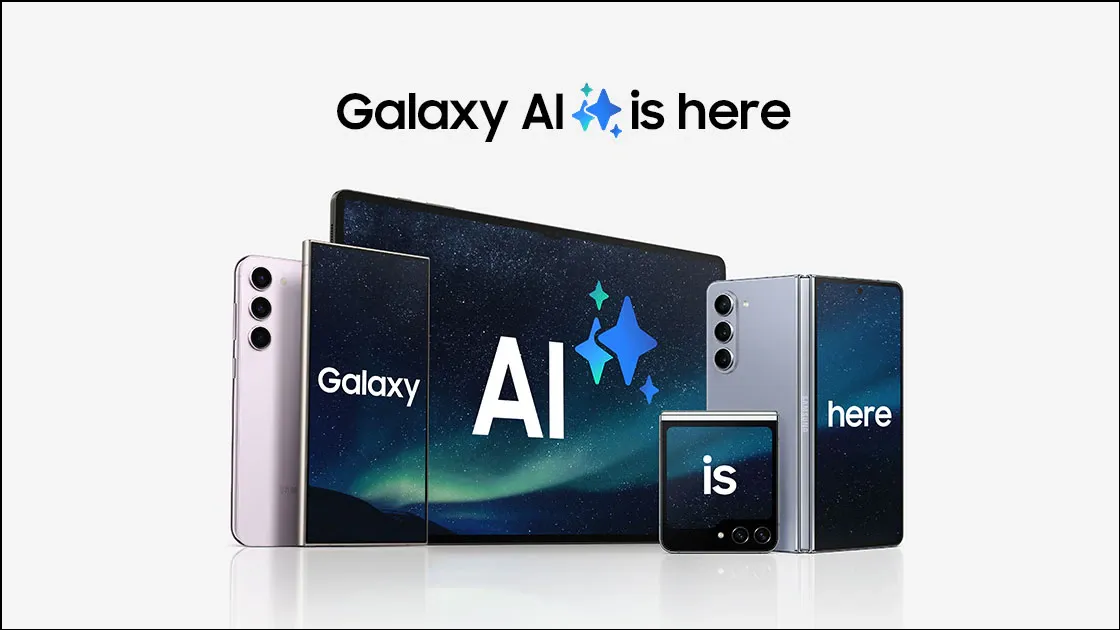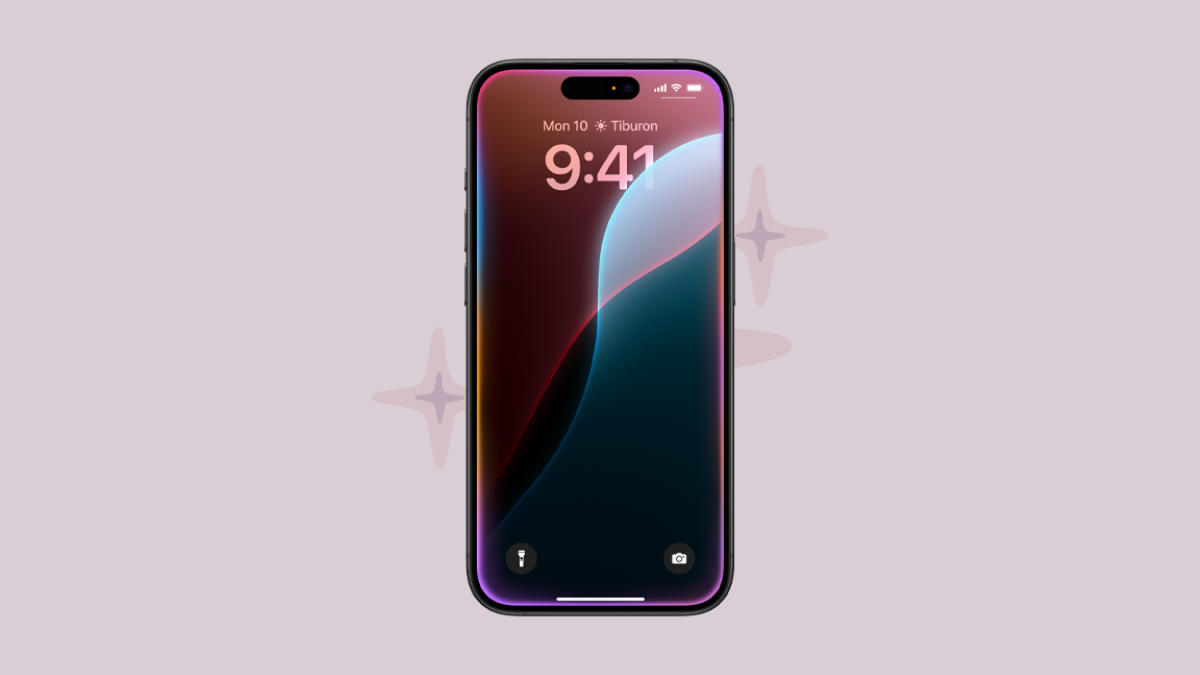To say that Apple and Samsung share a complicated relationship would be an understatement. They are the biggest names in the tech industry and have been both partners and rivals at different points in time, and continue to be so even now. While Samsung often supplies Apple with hardware components, its position as Android's champion means it has a very different vision of the ideal OS for users.
With Apple announcing its own generative AI in the form of Apple Intelligence, the rivalry between the two has once again gained prominence, especially since Samsung already announced its Galaxy AI back in January this year. The way these technologies are progressing, there's no doubt that they will become an important deciding factor for buyers in the future. So, the question that now remains is which of the two generative AI technologies is better, and we'll try to answer it here in this guide, so make sure to read until the end!
What is Apple Intelligence and How does it work?
Apple Intelligence is the company's generative AI that works across supported Apple devices, allowing users to do things like write messages, respond to emails, search for information online, generate images, and more. It works both within and outside multiple apps, simplifying tasks and reducing the effort and time involved in completing them.
The new technology will also be coming to built-in services like Siri, enhancing its capabilities, while bringing new features like image generation and writing assistance to supported devices. While there is no specific release date, we know that Apple Intelligence will be coming to select devices this fall.

Apple Intelligence processes run mostly on-device but even those that need to run on the cloud do so in Apple's Private Cloud Compute to ensure privacy.

What can Samsung's Galaxy AI do?
Galaxy AI is yet another generative AI that is designed to help users perform various tasks more easily, like conducting image searches, getting translations, editing images, and more. Powered by Samsung's Gauss machine learning platform, Galaxy AI, like Apple Intelligence, offers several features that aim to enhance the user experience.
These include live translations in calls, which are decently fast, very accurate, and will support 13 languages at launch, with Samsung promising to add more later. In addition, Galaxy AI will let you edit images easily, so you can remove unwanted obstructions from photos, move certain elements to a different position, and so on.
Galaxy AI will also support Google's new Circle To Search feature, so you can use it to search for information by circling an item in any application without leaving it. Besides circling, the feature supports other intuitive gestures like scribbling and tapping.
Another feature that is a part of Galaxy AI is Interpreter, which will instantly translate conversations in split-screen view. It even works without Wi-Fi or cellular data, so you can use it offline as well. Interpreter works in tandem with Chat Assist, another feature that helps ensure your conversational tone is just right.
Other Galaxy AI features include Note Assist, which adjusts your notes according to premade templates, Transcript Assist for quick translation and transcription of audio, and summaries from Android Auto along with suggestions for actions and replies.

Apple Intelligence vs. Galaxy AI - How do the two compare to each other?
Both Apple Intelligence and Samsung's Galaxy AI aim to deliver a better user experience by simplifying user interactions with their respective ecosystems. To a certain extent, they are also similar in the features they are promising to offer, such as image editing using AI, writing assistance, and AI-powered suggestions. That said, the two companies have different visions regarding the technology as a whole, and this is evident in several instances.
Device Integration and Availability
Apple Intelligence will be deeply integrated into a wide range of Apple devices, including iPhones, iPads, and Macs. It will run throughout the system, helping users perform different actions easily and quickly, both inside and outside various applications.
Apple Intelligence will also power the new version of Siri, expanding its capabilities and functionality and allowing it to do more things than it could before. Since it is deeply integrated with the Apple ecosystem, online cloud processing will only occur when it needs more processing power than is present on the device.
Samsung's Galaxy AI also relies on NPU (Neural Processing Unit) components present on Samsung devices for local processing. All of the company's latest flagship products, including its smartphones, tablets, and earbuds, will have access to Galaxy AI.
The company will also be bringing its generative AI to its smartwatches and it will also be present on flagship phones from 2022 and 2023. That said, so far, Samsung has not mentioned whether it will be available on its laptops.
Language Capabilities and Tools
Almost all major companies investing in AI have announced tools and features designed to provide writing assistance to users, including Apple and Samsung.
Apple introduced Writing Tools, which are a part of Apple Intelligence and can help you adjust the tone of your writing, create summaries from text documents, improve your grammar, and even proofread text you write. Writing Tools can be used for both entire text documents or a certain section of text.
In comparison, Galaxy AI language tools include a translation feature, which can be used to translate live audio into text or voice in any language. It can also find and remove errors in your text messages, transcribe audio, and provide writing assistance when you make notes.
Image Generation and Editing
When the AI revolution began around two years ago, image-generation capabilities were one of the most significant aspects of AI tools.
Apple Intelligence also brings image generation and editing to Apple devices, allowing you to generate images and Genmojis (custom emojis created by generative AI) using its Image Playground feature.
You can use prompts and suggestions to generate images quickly and can even transform simple sketches into beautiful art pieces. In addition to this, Apple Intelligence will let you edit photos by removing unwanted obstructions, moving certain elements and repositioning them, and cleaning up photos in other ways.
As for Galaxy AI's image capabilities, you get the 'Circle To Search' feature, which Google announced last month. This lets you circle, scribble, or highlight any element in an image or photo to get information about it. Additionally, the AI can offer suggestions for improving and enhancing photos where needed, and you can use it to remove artifacts, blurriness, and reflections from your photos.
Galaxy AI also comes with Generative Edit, which allows you to move, resize, and edit photos by removing unwanted objects.
Siri vs. Bixby
Apple's and Samsung's virtual assistants have allowed users to interact with their devices and get things done more easily.
However, Apple is taking this concept to a whole new level by upgrading Siri with Apple Intelligence. Thanks to this generative AI upgrade, Siri will now be able to operate throughout supported Apple devices and can be called up from anywhere. It will also now support text commands in addition to voice, and you can wake up Siri from anywhere you can type.
This means it will also work within apps and can perform actions on your behalf. Additionally, it can access information from apps like Files, Photos, and Mail to fill up forms, retrieve information, send messages, share photos, and do many other things. Siri will also understand users better since Apple Intelligence will enhance its conversational capabilities, so even when you stumble, it can still understand your commands and requests.

While Bixby offers a lot of functions, like offering suggestions and providing recommendations, it does not currently have the capabilities that virtual assistants powered by generative AI have. This puts it behind the upgraded version of Siri, though Samsung may be considering upgrading it in a similar manner.
Privacy and Security
The biggest distinguishing feature in the case of Apple Intelligence is its focus on privacy, which not only sets it apart from Samsung's Galaxy AI, but almost all major generative intelligence technologies entering the market. AI processes usually run on the cloud, which means there is always a privacy and security concern.
However, Apple Intelligence runs on-device for the most part, and even if certain processes require online processing, they are uploaded to the company's proprietary Private Cloud Compute servers. This means all your data is kept completely private.
In contrast, Samsung's Galaxy AI processes data in the cloud by default, though users have the option to adjust the setting so it can only do so on-device. While this is advantageous for users, Samsung does say on-device processing will limit some AI functionalities, and online processing provides the best AI experience.
Pricing
Right now, generative AI is just taking off, and its capabilities are only expected to increase and expand in the future. Many tech companies that are investing in this technology are offering their AI tools or at least the most popular features of these tools for free. This is also true for Apple, which has stated that Apple Intelligence will be completely free for its users.
Samsung has also kept Galaxy AI free for all until the end of 2025 but has reserved the right to charge customers in the future. We will have to wait and see how the company decides to charge its customers for using Galaxy AI features.
With Apple announcing the Apple Intelligence generative AI for its devices, the company is offering its own take on AI. Its biggest rival Samsung's Galaxy AI, announced at the beginning of this year, offers several similar features. However, the South Korean conglomerate has already started bringing Galaxy AI features to supported devices, while Apple Intelligence will be available in beta later this year.
While both generative AI technologies are designed to improve the user experience, it is hard to say which one does it better. Though Apple's emphasis on privacy is praiseworthy, many of the features it is promising are already available in Galaxy AI and other generative AI chatbots. On the other hand, Apple's decision to make Apple Intelligence free might put it at an advantage, especially when Samsung starts charging users for Galaxy AI features after 2025.


